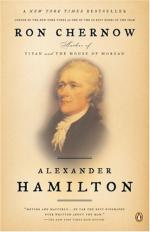|
This section contains 541 words (approx. 2 pages at 300 words per page) |

|
The nineteenth-century revival of logic in Britain, inaugurated by Whately and continued by, among others, George Bentham, chrétien, and Solly, owed much of its later impetus to the cosmopolitan learning and reforming zeal of Sir William Hamilton (1788–1856). A severely critical article by Hamilton on Whately and his followers, in the Edinburgh Review (1833; reprinted in his Discussions, London and Edinburgh, 1852), established his authority in the field, which was chiefly exercised thereafter in oral teaching from his Edinburgh chair. His scattered and largely polemical writings, including even the posthumous Lectures on Logic (Edinburgh and London, 1861), give a very imperfect account of his system, which acquired such order as it possessed from the works of his pupils and disciples: William Thomson and H. L. Mansel at Oxford; T. S. Baynes, John Veitch, and William Spalding in Scotland; and Francis Bowen in America. Hamilton's main service was to insist, following Kant...
|
This section contains 541 words (approx. 2 pages at 300 words per page) |

|


